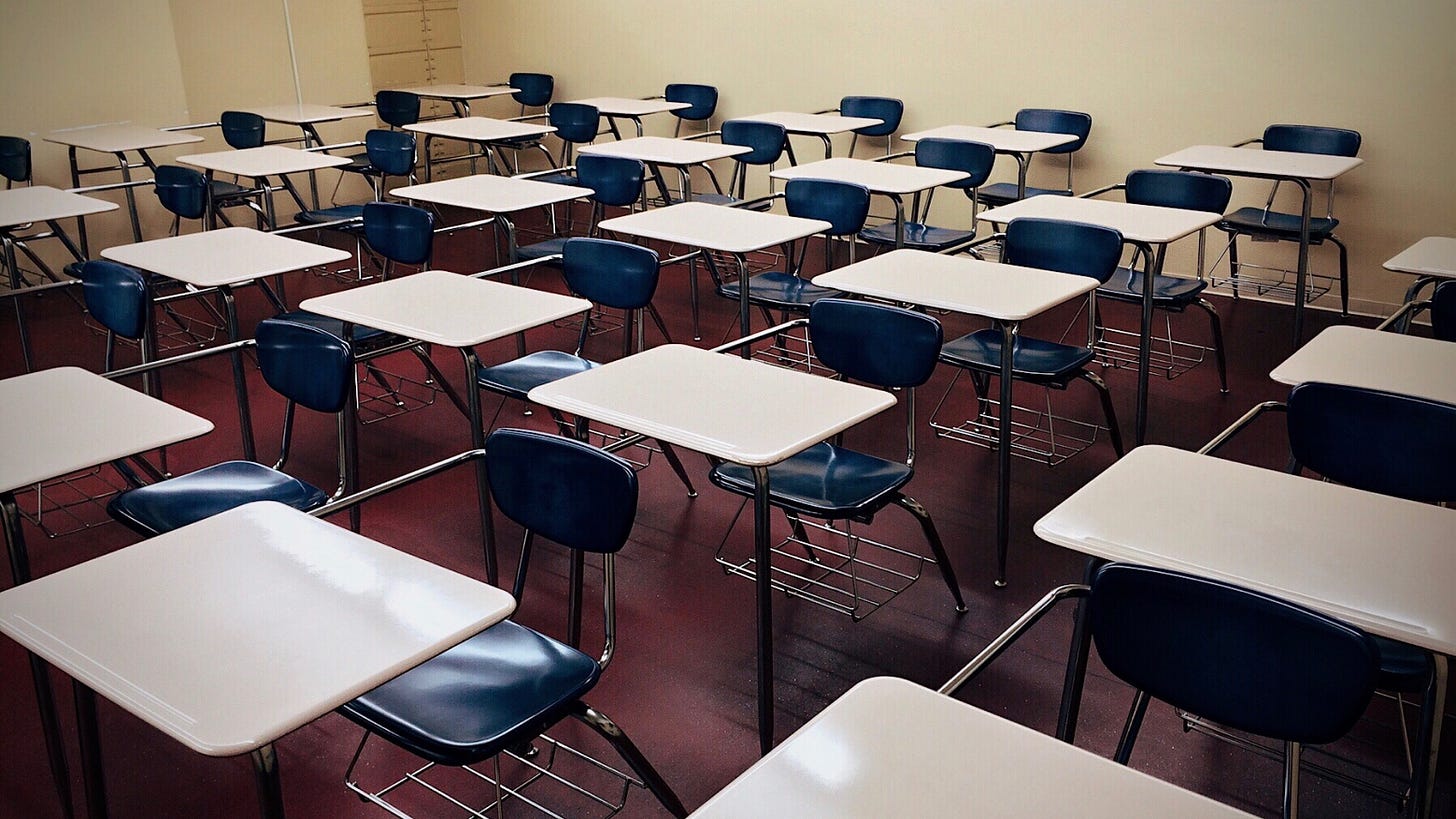Systemic Pedophilia Is About More Than Just Egregious Cases
The every day matters as much as the worst-case scenarios.
I’m pretty sure I could build my Twitter account just by quote tweeting horrible stories about people in power abusing children with the caption “systemic pedophilia” and a link to this article. To be clear, these worst-case stories are systemic pedophilia and should be stopped. However, if I was to make this the focus of my account, two things might happen.
First, most major social media companies are engaged in systemic pedophilia, including Twitter. While we can use these companies to spread Children’s Justice ideas, I have no interest in building a following on platforms that have banned me in the past and are controlled by pedophile-apologist organizations. It would be a contradiction in principles to make building a following on these platforms an end in itself. Instead, I use these platforms to as much as possible draw people to spaces I have greater control over, like my website and podcast.
However, the more important reason I don’t focus on these worst-case stories is that people might get the false idea that systemic pedophilia doesn’t extend beyond the most egregious cases. It is easy to see why worst-cases are wrong. Yet, there are subtle ways that everyday people fail to act against this system. Language, beliefs, attitudes, and institutions can all be a part of this system, not just “elites” engaged in secret crimes occasionally exposed. Most of what we would consider systemic pedophilia is common, every day, and not even recognized as harmful.
The danger in focusing on the worst-cases is that readers might assume that the problems we are addressing are in some distant halls of power, rather than around us every day. While some might want the concept of systemic pedophilia to be merely a cudgel for one social tribe to beat another, if it is a social system, then like other social systems described in critical social justice, there are no parts of society exempt from its influence. While the rich and powerful might be able to do greater evil, everyone is capable of being complicit unless they use a critical consciousness.
Take for example the political focus on what is taught in schools. Some parents are upset by what they feel is sexually explicit material taught in school intended to groom children. They think if they could just change the curriculum, the problem would be solved. Yet the structure of compulsory Government schooling is inherently pedophile. It is predicated on the assumption that the state owns children’s bodies and can force them to do things the state wants. The major political parties just disagree on how force should be applied to children, not the force itself. Conservatives can’t complain when they send their children to an institution designed to force children to learn what parents won’t teach them and it does just that.
Although awful, the egregious cases are less common than these everyday violations of children. What is the culture-wide impact of the majority of children experiencing trauma in hospital birth or twelve years of the abuses of school? These harms are so common that their impact is often seen as just how people are, yet when we compare those raised in the systems to traditional indigenous communities raised outside these systems, the problems become apparent. If we were to transform these larger cultural structures, all of society would transform with them. The egregious problems are just the visible surface of an iceberg of trauma that extends deep into society. This larger structure is the aim of Children’s Justice.



Native Americans…if it wasn’t for the invaders and their diseases ie addictions, children and women would still be safe in America. There are role models if we dare. I’ve attempted to expose systemic pedophilia in schools, doctors, attorneys, entertainment et al.
“ These harms are so common that their impact is often seen as just how people are, yet when we compare those raised in the systems to traditional indigenous communities raised outside these systems, the problems become apparent. ” —> my default working assumption is that literally every human culture systemically rapes / abuses children throughout all of history. Do you have an example of one that doesn’t? How would you KNOW whether another culture truly doesn’t abuse the children that it has access to? You certainly can’t just go off the culture’s reports. I’m genuinely curious if you’re thinking of a concrete culture here because it would be a rare and precious example of how to do things right if it existed.